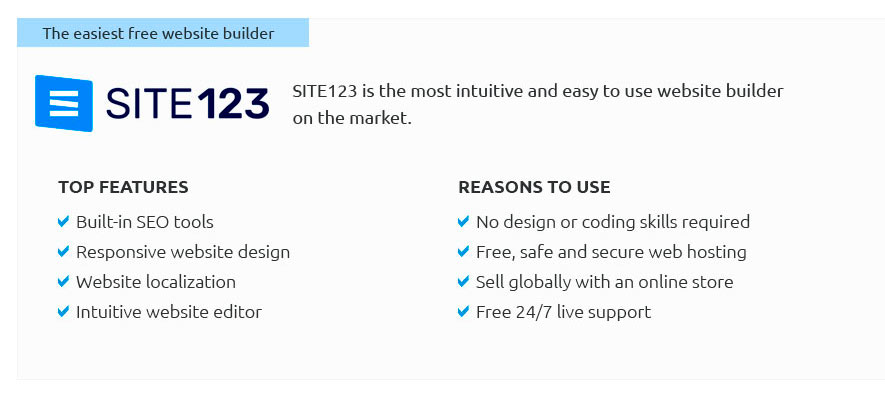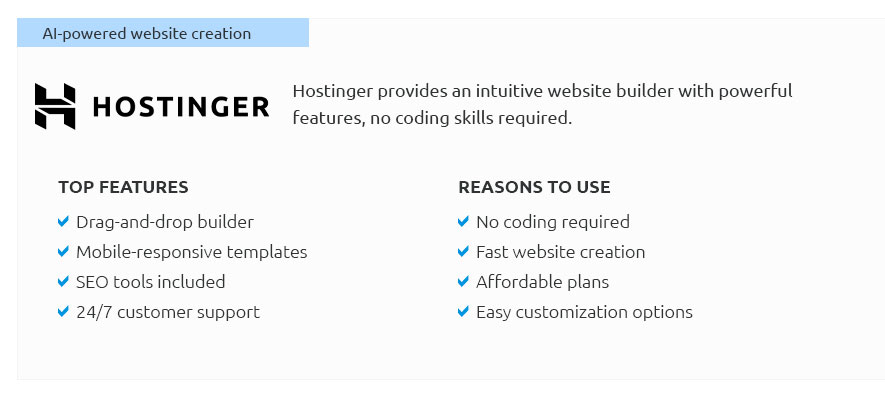 |
 |
 |
 |
|
 |
 |
 |
|
 |
|
 |
 |
|
 |
|
 |
|
 |
 |
Best Place to Build Your Website: Key Considerations and Top ChoicesIn today's digital age, creating a website is no longer a luxury but a necessity. Whether you're a small business owner, an aspiring blogger, or a professional looking to establish an online presence, the platform you choose to build your website can significantly impact your success. With a plethora of options available, making the right choice requires careful consideration of various factors. Firstly, let's delve into the fundamental aspects to consider when selecting a website building platform. Ease of Use is paramount, especially for beginners who may not possess advanced technical skills. Platforms with intuitive drag-and-drop interfaces, such as Wix or Squarespace, are often recommended for their user-friendly nature, allowing individuals to create visually appealing websites without any coding knowledge. However, if you are seeking more customization and control over your site, WordPress emerges as a popular choice. As an open-source platform, it offers a vast array of plugins and themes, enabling users to tailor their websites to their specific needs. While it may have a steeper learning curve, the flexibility it provides is unmatched. Another critical factor is cost. Budget constraints often play a significant role in the decision-making process. Platforms like Wix and Squarespace offer tiered pricing plans, making them accessible to a wide range of users. On the other hand, while WordPress itself is free, costs can accumulate through hosting services, premium themes, and plugins. Furthermore, consider the importance of SEO capabilities. A website that ranks well on search engines is more likely to attract visitors. While most platforms offer basic SEO tools, some, like WordPress, provide advanced features through plugins like Yoast SEO, which can significantly enhance your site's visibility. Security is another vital consideration. With cyber threats on the rise, ensuring your website's protection is crucial. Platforms like Shopify, designed specifically for e-commerce, prioritize security with built-in SSL certificates and compliance with PCI standards, making them ideal for online stores. In addition to the above factors, consider the level of customer support offered by the platform. Reliable support can be invaluable, particularly for those with limited technical expertise. Platforms such as Squarespace and Shopify are known for their excellent customer service, offering 24/7 assistance to resolve any issues promptly. Finally, it's essential to anticipate your website's future scalability. As your business or personal brand grows, your website should be able to expand with it. Platforms like WordPress and Shopify are designed to handle growth, offering scalable solutions that accommodate increased traffic and additional features. In conclusion, the best place to build your website depends largely on your specific needs and goals. If simplicity and ease of use are your top priorities, platforms like Wix and Squarespace may be the perfect fit. For those seeking advanced customization and scalability, WordPress stands out as a robust option. Meanwhile, aspiring e-commerce entrepreneurs might find Shopify to be the ideal solution. Ultimately, staying well-informed and weighing these important considerations will empower you to make a decision that aligns with your vision for an online presence. https://www.reddit.com/r/Entrepreneur/comments/16phoux/what_is_the_best_website_builder_youve_used/
Weebly: Weebly is handy when setting up a small business website. It's user-friendly and great for local businesses looking to establish an ... https://www.quora.com/Where-is-the-best-place-I-can-build-a-website-for-my-hotel
Wix Best overall - Squarespace Best template designs - Weebly Ideal for small businesses - SITE123 Great help and support - Strikingly ... https://www.techradar.com/news/the-best-website-builder
Wix takes the top spot thanks to its overall performance, ease of use, extensive range of tools, and affordable pricing. It also offers a ...
|